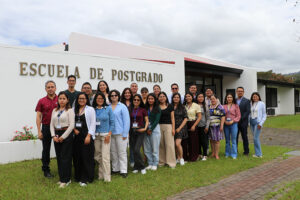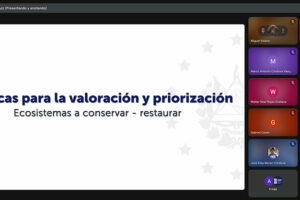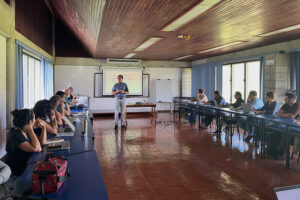CATIE participates in the launch of the 5G/6G Testbed to drive technological solutions in sustainable agribusiness
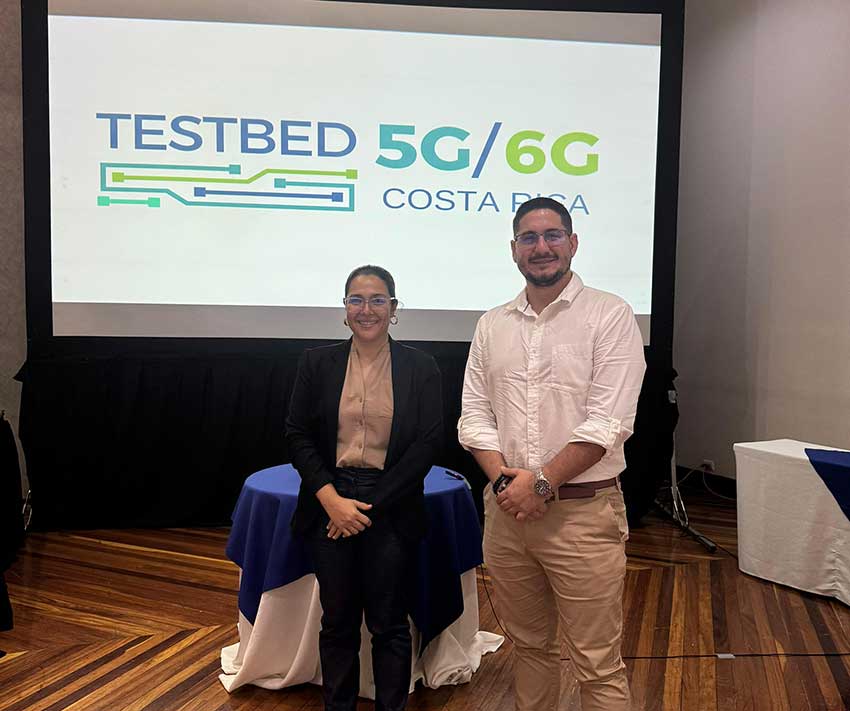
- The event marked a milestone for the region by presenting a laboratory that will enable experimenting, validating, and implementing technology-based solutions, with a special focus on benefiting SMEs, cooperatives, academia, and public and private institutions.
CATIE (Tropical Agricultural Research and Higher Education Center) joined the official launch of the 5G/6G Testbed Laboratory in Costa Rica, an event that marks a strategic step to transform key sectors of the country through advanced connectivity and the implementation of next-generation technologies.
Representing CATIE were Adriana Escobedo, specialist in sustainable value chains and coordinator of the Master’s in Agribusiness Management and Sustainable Markets (GANEMOS), and Anthony Gamboa Chavarría, specialist in sustainable agribusiness, both from the Unit of Environmental Economics and Sustainable Agribusiness (UEASS/EfD).
Gamboa stated that “From CATIE’s Sustainable Agribusiness area, we see the 5G Testbed Laboratory as a key opportunity to enhance digital transformation processes in agri-food chains. One of the biggest challenges faced by the agricultural sector is modernization, which can be achieved through the use of technological tools that validate solutions responding to territorial challenges.”
For the specialist, at CATIE we work with cooperatives, associations, MSMEs, and small producers; we know that these tools can make a difference in decision-making, access to differentiated markets, and the sustainability of agribusiness. “The possibility of integrating technologies such as IoT sensors, drones, data analytics, and automation of agricultural processes in a controlled environment like the one offered by the Testbed allows us to advance in building more sustainable, resilient, and competitive production models,” he said.
Escobedo, for her part, pointed out that “technological innovation is key to ensuring the sustainability of MSMEs. It was one of the central themes of AGROMIRA, and precisely along those lines we received this invitation. Participating in this launch opens new opportunities for the agricultural sector, for Costa Rica, and for CATIE as a regional platform for knowledge and experience sharing. Our intention is to integrate into the laboratory and continue scaling up concrete learnings and solutions from the field.”
The event, held at the Radisson Hotel in San José, marked a milestone for the country and the region by presenting a laboratory that will enable experimenting, validating, and implementing 5G and 6G technology-based solutions, with a special focus on benefiting SMEs, cooperatives, academia, and public and private institutions.
Key contributions
During the launch, Ana Patricia Rojas, director of the Costa Rican Agency for Innovation and Research Promotion (PCII), highlighted that the Testbed, financed with 500,000 euros by the European Union cooperation project “5G Connectivity in Costa Rica,” will democratize access to technology and generate impact in regions outside the Greater Metropolitan Area, such as Upala, Los Chiles, Guatuso, and Limón.
Guillermo Jiménez, CTO of Nokia Enterprise Campus Edge-LATAM, presented use cases demonstrating how private 5G networks enable smart factories, remote maintenance with augmented reality, connected ambulances, and other advances that boost productivity and efficiency in strategic sectors like industry, mining, and healthcare. He also highlighted Costa Rica as a pioneer in Latin America in connected industrial environments.
Meanwhile, Antonio Javier García Sánchez, CEO of Qartia Smart Technologies, shared the experience of the first 5G laboratory for industrial and agricultural uses in Spain, emphasizing the potential of 5G for precision agriculture, smart irrigation, and drone monitoring—applications that open new opportunities for sustainable agribusiness in Costa Rica and the region.
The Minister of Science, Innovation, Technology, and Telecommunications, Paula Bogantes, stressed that the launch of the 5G/6G Testbed represents a decisive step for Costa Rica. “This 5G Testbed will be a vital infrastructure for open innovation in telecommunications. It complements our efforts in network deployment and regulatory frameworks, fostering an environment for companies of all sizes, especially MSMEs, and developers to explore the capabilities of 5G, thus democratizing access to cutting-edge technology and actively contributing to closing the digital divide through solution offerings,” she said.
Additionally, the event featured the participation of the Ambassador of Spain, Eva Felicia Martínez Sánchez, and the Ambassador of the European Union in Costa Rica, Pierre-Louis Lempereur, who emphasized their countries’ commitment to Costa Rica’s inclusive digital transformation.
With its participation in the launch of the 5G/6G Testbed, CATIE opens new opportunities to apply next-generation technology to sustainable agribusiness, contributing its expertise so that innovation drives resilient value chains adapted to the challenges of the 21st century in Latin America.
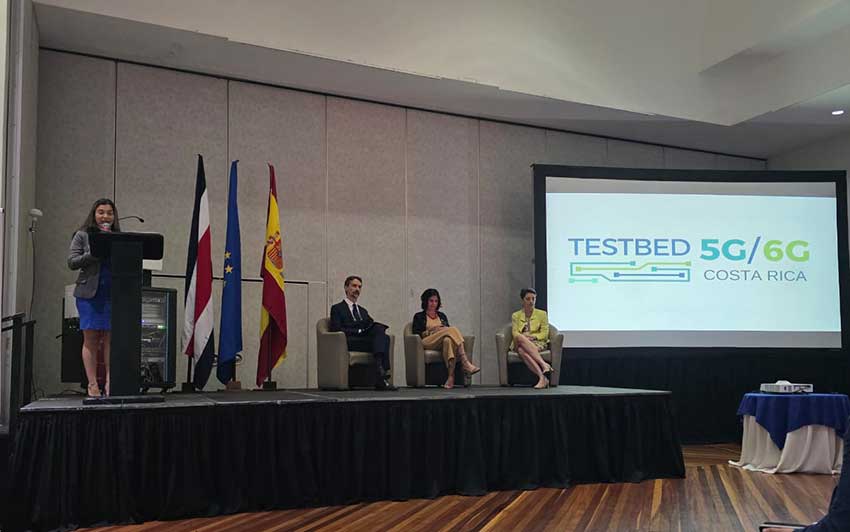
More information:
Adriana Escobedo
Specialist in sustainable agribusiness and value chains
Coordinator of the GANEMOS Master’s Program
Environmental Economics and Sustainable Agribusiness Unit (UEAAS/EfD)
CATIE
escobedo@catie.ac.cr
Anthony Gamboa
Specialist in Agricultural Economics and Sustainable Agribusiness
Unit for Environmental Economics and Sustainable Agribusiness (UEAAS/EfD)
CATIE
anthony.gamboa@catie.ac.cr
Written by:
Esteban Rodríguez Zamora
Communicator
Information Technology and Communication
CATIE
esteban.rodriguez@catie.ac.cr

